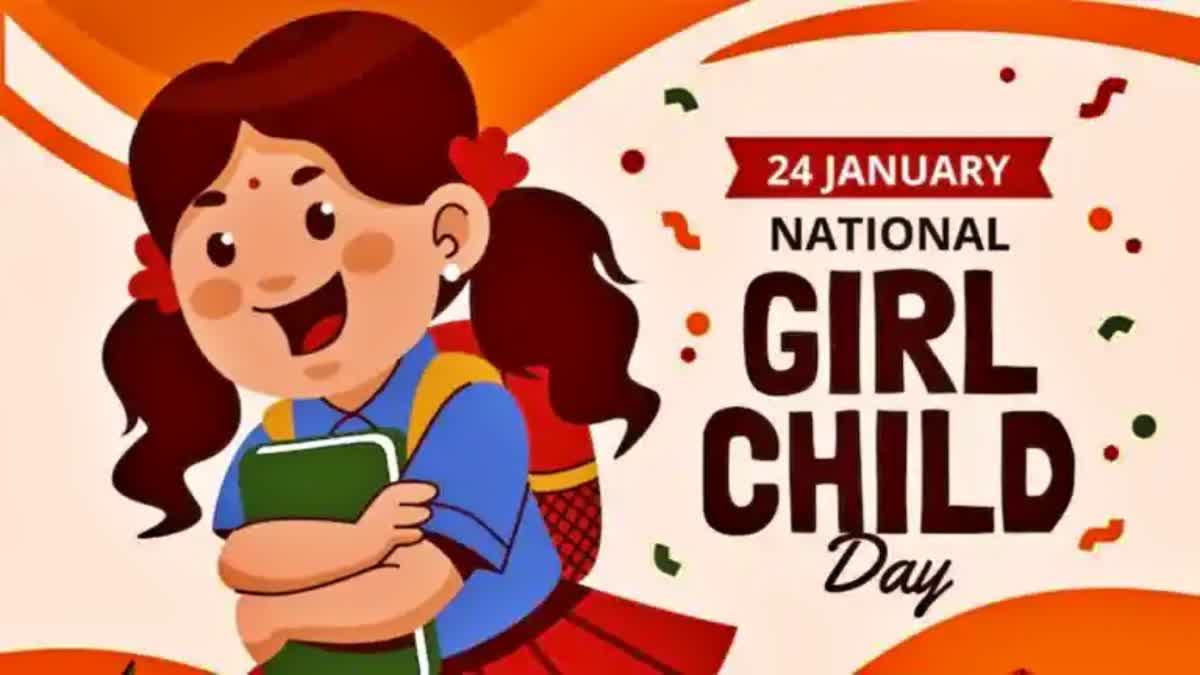Hyderabad: National Girl Child Day or Rashtriya Balika Diwas is celebrated in India on January 24 each year to raise awareness about the rights, education, and well-being of girls and to promote gender equality in society.
History
The Ministry of Women and Child Development, Government of India, initiated National Girl Child Day in 2008. The aim was to address gender-based discrimination and create awareness about the importance of girls in society. The day emphasises providing better opportunities for education, healthcare, and safety for girls while also challenging deep-rooted societal norms that favour sons over daughters.
Theme
The 2025 theme for National Girl Child Day is “Empowering Girls for a Bright Future”, reinforcing the commitment to providing girls with equal opportunities to shape their futures and contribute to society.
Why is National Girl Child Day Celebrated?
- Raise Awareness: Spread awareness about the inequalities and challenges faced by the girl child in India, including child marriage, gender bias and lack of education.
- Promote Education: Advocate for the right to education and equal opportunities for girls.
- Eradicate Gender Discrimination: Encourage gender quality in all spheres, including families, workplaces, and educational institutions.
- Empowerment of girls: Focus on empowering girls so they can achieve their full potential and contribute to society.
Indira Gandhi Symbol of Empowerment
On January 24, 1966, Indira Gandhi took the oath as India's first women Prime Minister, marking a monumental day in Indian history. Her leadership as the first woman Prime Minister symbolised the potential of women to hold the highest positions of power and responsibility. This historic event aligns perfectly with the values of National Girl Child Day, serving as a powerful inspiration for women and girls in India to aspire for leadership and break barriers.
National Girl Child Day Objectives
- Promote gender equality by eliminating discrimination against girls
- Advocate for equal educational opportunities for girls
- Emphasise girl’s rights in health, safety and education
- Address social issues like child marriage, infanticide and dowry
- Create an environment for girls to pursue their aspirations
- Raise societal awareness of the importance of girls
- Support government policies for girl child welfare and development
Significance of the Day
National Girl Child Day celebrates the achievements of girls and women while addressing the systemic challenges they face. By coinciding with the day, Indira Gandhi assumed office, it serves as a reminder of the progress made in women’s empowerment and the continued fight for gender equality in India.
Government schemes for the girl child in India
- Sukanya Samriddhi Yojan
- Balika Samriddhi Yojan
- Nanda Devi Kanya Yojan
- Mukhyamantri Kanya Suraksha Yojan
- CBSE Udaan Scheme
- Majhi Kanya Bhagyashree Schem
- Beti Bachao, Beti Padha
- Ladli Lakshmi Yojana
- National Scheme for Incentive to Girls for Secondary Education
- Mukhyamantri Rajshri Yojana
Laws That Protect Girls In India
- The Prohibition of Child Marriage Act, 2006, aims to eliminate child marriage by penalising those involved.
- The Protection of Children from Sexual Offences (POCSO) Act, 2012, addresses child abuse, with updated rules in 2020 to enhance its implementation.
- The Juvenile Justice Act, 2015, ensures the care and protection of children in need.
- Mission Vatsalya focuses on child development and protection, with services like the Child Helpline and the Track Child portal to assist missing children.
- Track Child portal is functional since the year 2012. This portal facilitates the matching of ‘missing’ children being reported at Police stations with those ‘found’ children who are residing in the Child Care Institutions (CCIs).
- The PM CARES for Children Scheme supports children orphaned by COVID-19.
- Collaborations with NIMHANS and the E-SAMPARK programme ensure mental health and medical care.
Read more



